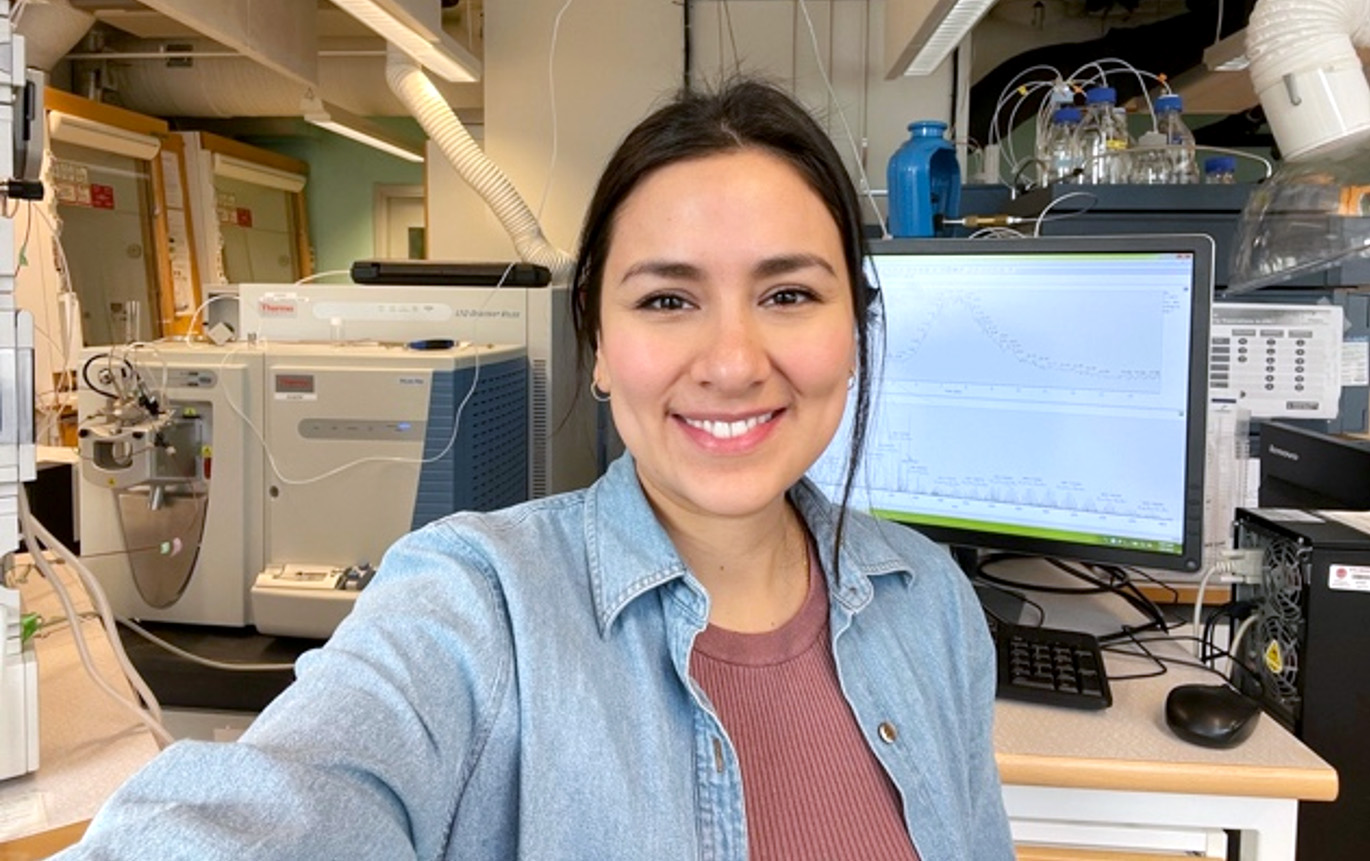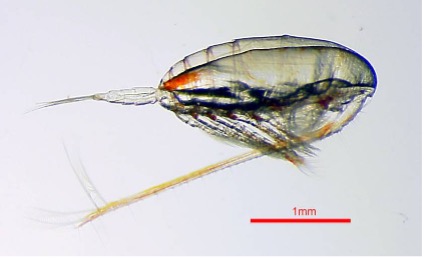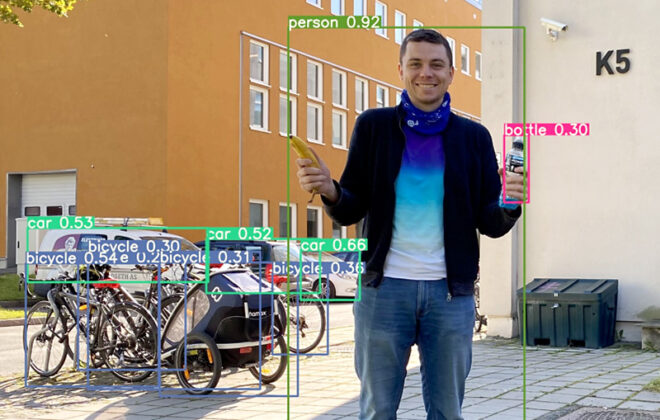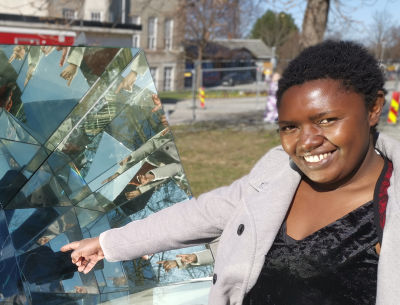My research experience abroad – fostering curiosity
Ever wonder how the ocean reserves as much dissolved organic carbon as atmospheric levels of carbon dioxide? The truth is I do not have the answer to this question. Merely this question is what captivated my interest in this topic. How is it that nature maintains this immense carbon capture system and we still can´t figure out exactly how it functions?
Main players
One way to begin to answer this question is to identify the main players, that is the organic molecules in this carbon system. Their chemical identities reveal their fluctuation patterns in the ocean. Seems simple enough, right? Well, turns out there are thousands of molecules, and they have similar chemical properties thus making it difficult to differentiate and identify. However, we can look at their molecular properties and assign them into classes. Nonetheless, a high-resolution mass spectrometer is needed to characterise these organic molecules and intricate data processing is required to assign molecular formulae and visualize.
Polar night
Our samples were taken from the polar night period, late winter and spring in the northern Barents Sea and Arctic basin. Seasonal patterns of dissolved organic matter in the Artic are difficult to find. With our work we aim to uncover how the molecular diversity of dissolved organic matter differs between the polar night period and spring in the Arctic.
Research abroad
On my pursuit to learn more about dissolved organic matter, I decided to take my eight-month-old baby and 234 samples for a research abroad period at Uppsala University. The city of Uppsala is one of the oldest cities in Sweden and home to the oldest university in Northern Europe.
Besides the city’s charm I was mainly drawn to the work of Associate Professor Jeffrey Hawkes. Associate Professor Hawkes has established methods for analysing dissolved organic matter using an orbitrap mass spectrometer. His publications show that coupling a chromatography column to a mass spectrometer is a valuable tool for deciphering the chemical diversity of organic matter.
When I arrived, I knew I was at the right place when I saw that the phds at the department fitted a beer fridge into an old mass spectrometer. During my time here, I have learned about analysing samples, in addition to using code to clean, sort, and interpret data. I am positive that I will leave Uppsala with way more questions than before I arrived but it has reminded me why I started a phd. The excitement of chasing the answers is worth the ride.
To be continued…

Maria Guadalupe Digernes
Maria Guadalupe Digernes is a PhD candidate and marine biochemist at the Department of Chemistry at NTNU.
Search
Søk
Categories
- Arctic Research
- Arkitektur
- Bærekraft
- Bioingeniørfag
- Biologi
- Biology
- Biomedical Laboratory Science
- Biotechnology
- Bioteknologi
- Chemical Engineering
- Chemistry
- Climate
- Computer Science
- Datateknologi
- Digital
- Elektronikk
- Energi
- Energi
- Energy
- Engineering
- Engineering
- Environment
- Food Science
- Forskning
- Fysikk
- Fysikk
- Havbruk
- Informasjonsteknologi
- Informasjonsteknologi
- Ingeniørvitenskap
- Kjemi
- Kjemisk prosessteknologi
- Kjemisk prosessteknologi
- Kreftbehandling
- Kybernetikk
- Marine Technology
- Materialer
- Materials Science
- Materialteknologi
- Matvitenskap
- Meninger
- Miljø
- Min ph.d.
- My PhD
- My PhD
- My postdoc
- Nanotechnology
- Nanoteknologi
- Ocean
- Oil and gas
- Physics
- Research
- Simulering og visualisering
- Spør en forsker
- Studentliv
- Sustainability
- Ukategorisert
- Universitetsliv
- University Life
Kategorier
- Arctic Research
- Arkitektur
- Bærekraft
- Bioingeniørfag
- Biologi
- Biology
- Biomedical Laboratory Science
- Biotechnology
- Bioteknologi
- Chemical Engineering
- Chemistry
- Climate
- Computer Science
- Datateknologi
- Digital
- Elektronikk
- Energi
- Energi
- Energy
- Engineering
- Engineering
- Environment
- Food Science
- Forskning
- Fysikk
- Fysikk
- Havbruk
- Informasjonsteknologi
- Informasjonsteknologi
- Ingeniørvitenskap
- Kjemi
- Kjemisk prosessteknologi
- Kjemisk prosessteknologi
- Kreftbehandling
- Kybernetikk
- Marine Technology
- Materialer
- Materials Science
- Materialteknologi
- Matvitenskap
- Meninger
- Miljø
- Min ph.d.
- My PhD
- My PhD
- My postdoc
- Nanotechnology
- Nanoteknologi
- Ocean
- Oil and gas
- Physics
- Research
- Simulering og visualisering
- Spør en forsker
- Studentliv
- Sustainability
- Ukategorisert
- Universitetsliv
- University Life




